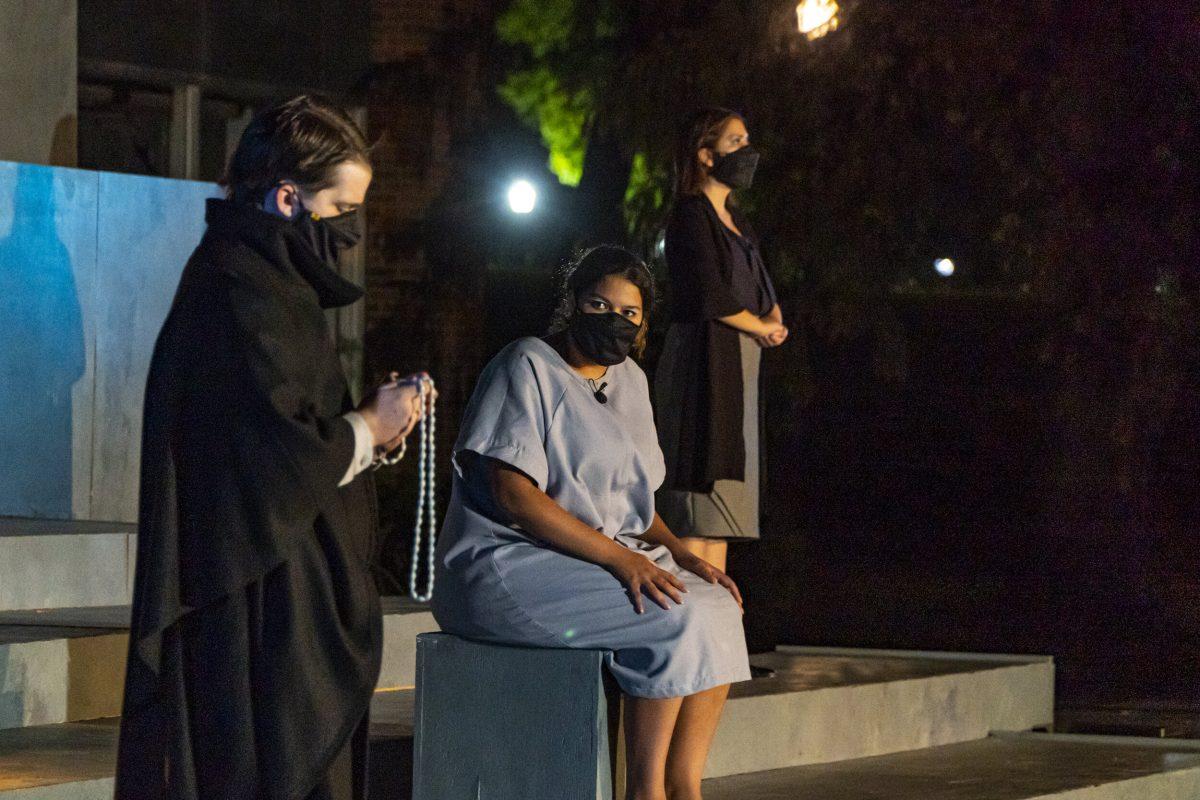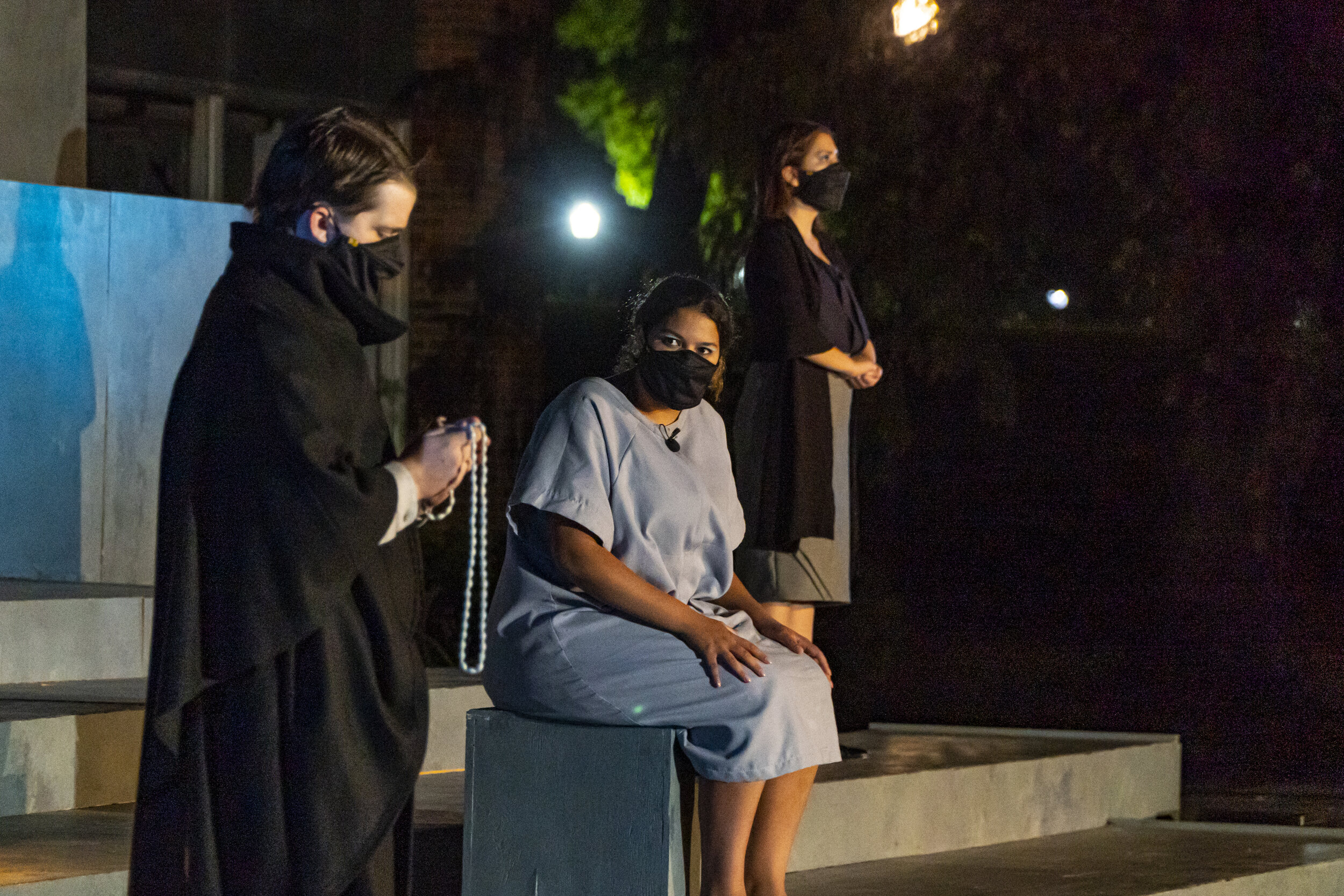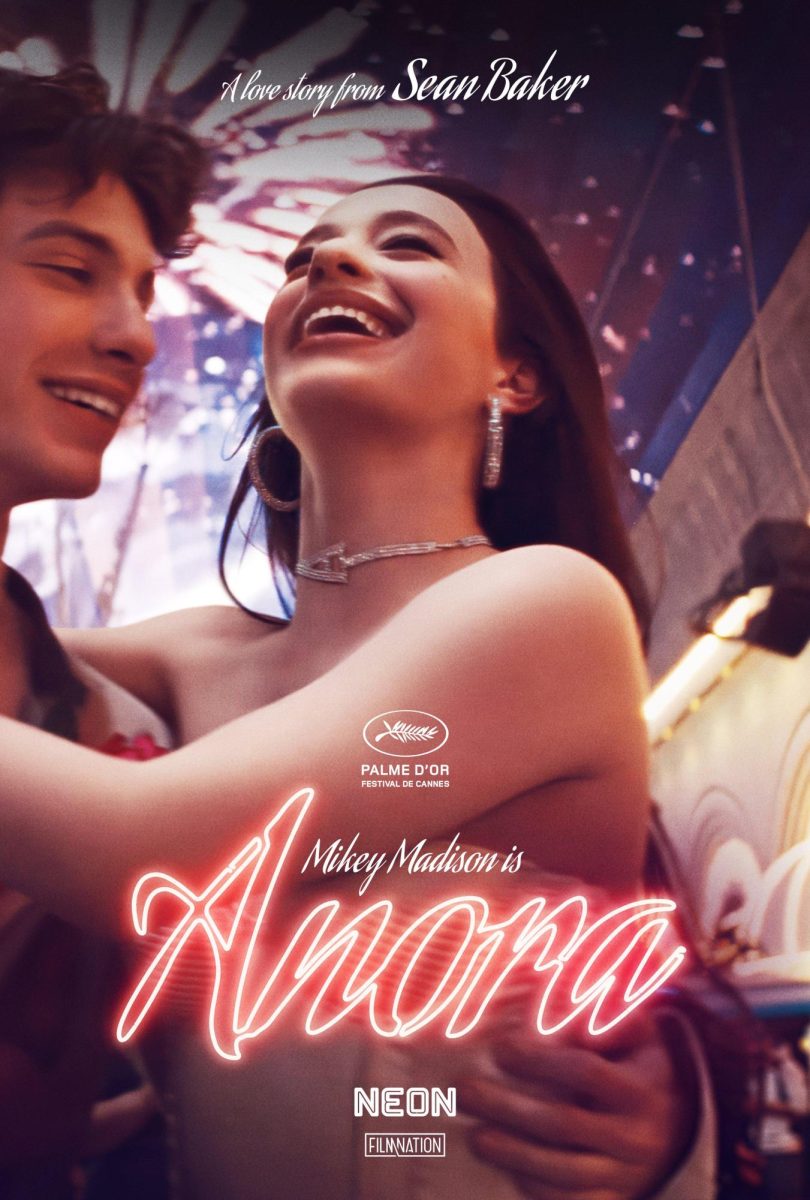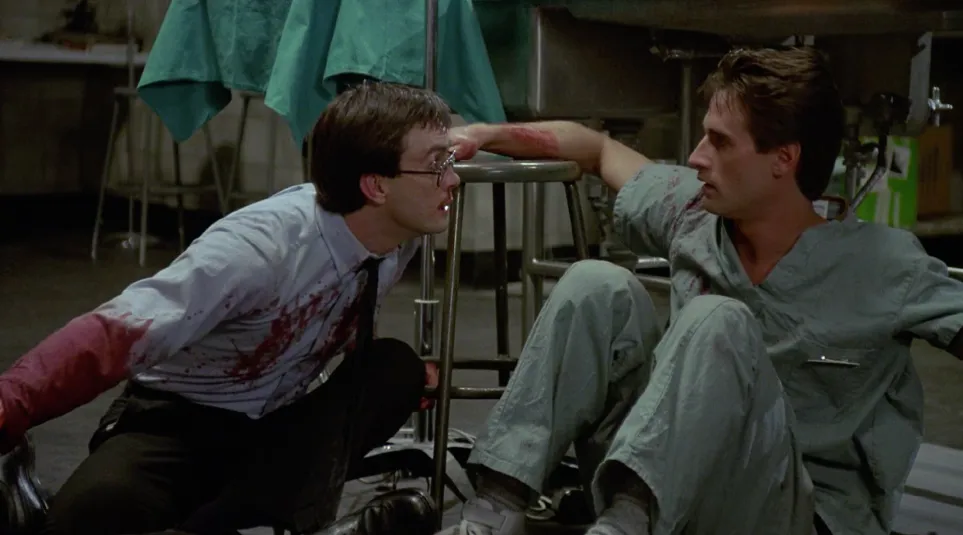The expressionist play was performed in CFA’s Art Bowl on May 15 and 16. “Machinal” addresses themes of capitalism, sexism, marriage and family as they relate to the main character whose fate was inspired by a true historical event.
“Suppose the machine shouldn’t work?”
“It’ll work. It always works.”
For the director, senior Marion Frank, these last two lines of spring term’s studio show “Machinal” embody the main idea of the play. The machine, or systems in society, will always work the way they are designed to, whether to the benefit or detriment of the individual, but it doesn’t mean the individual shouldn’t fight against it. The machine referenced in the line is an electric chair, which kills the main character Helen Jones at the end of the show. Yet, the overarching idea of the play is to showcase how the machine of life can make a person feel trapped. Despite being written almost a century ago, Frank feels that its message remains potent for today’s world.
“I think it’s so relevant now, because for me, it serves as a call to revolution. By showing this mechanized and rote society in the way that Helen constantly attempts to break free but is not able to,” said Frank. “Hopefully then, audience members can see that and recognize, ‘Oh, this is the same way that people are being exploited, now and in the workforce under capitalism through racism, sexism and other forms of oppression.’”
Back in 1928, a New York woman named Ruth Snyder made more than headlines when she was convicted and put to death for the murder of her abusive husband. Her final moment of life was photographed and plastered on the cover of many newspapers. “Machinal” playwright Sophie Treadwell released the play later that year, with the demise of her character Helen Jones inspired by that of Ruth Snyder. Sophomore Addison Anderson portrayed the role of Helen Jones in this term’s adaptation.
“[Helen] represents the worst of how those systems can affect someone. She’s so run down by working in a company, and having to marry somebody and having children. These things that feel, in her opinion, that have been forced onto her,” said Anderson. “She often cannot control her emotions related to those things.”
In addition to being a studio show, the production doubles as Frank’s Honors Project for theater. In addition to being the director, Frank is also the lighting designer. The play’s genre of expressionism greatly influenced the way that she approached directing and design. Since expressionist plays tend to express the emotional viewpoint of the actor rather than recreating reality, elements of lighting and sound play large roles. As for the actors, Frank looked heavily toward the theory of Viewpoints in telling the performers how to move. She wanted the performers to seem like parts of a machine, except Helen Jones who wanted to break free from the blueprint.
“We decided for the play, because it’s Machinal and because we were focused on a very crisp rectilinear line quality that felt very mechanized, very rote, [that] all of the characters in the play walk on a grid pattern,” said Frank. “They can only move in 90 degree angles or 180 [degrees].”
While Frank and her scenic designer, junior Zach Farmer, initially planned for this production to take place indoors at the time of applying for a slot, as the date approached, they saw the COVID situation wasn’t improving as much as it needed to. In addition to being masked, six feet apart and unable to touch for certain scenes, the actors performed outside of CFA. This show is the first to be outside with full lighting and sound since the beginning of the academic year. The sounds of the environment might intrude at any time, but Anderson says they can also add to the feeling of the play.
“You hear the big humming of the electrical building, then sometimes trains are honking their horns, but you just have to keep acting. In a weird way, the show is very not connected to nature. Machinal, from the machine, the whole set is gray and linear, not natural. But then we’re outside, and it’s a very weird juxtaposition,” said Anderson. “But the sounds from outside in that space are very often not nature-y sounds, it is very mechanical and machinery, so it does add to the ambience in a strange way.”
For Anderson, the greatest challenges of putting on this show in the time of Covid is both its emotional content and wearing a mask. Though she understands the necessity for safety, it has been a challenge to relearn how to express things with the body and the voice when emotion cannot be expressed in the face. With a show that centers around the intensifying emotions of her character, it’s particularly important for her to adapt.
“Especially as we are in these final weeks of rehearsing the whole show, pretty much every time we rehearse, it’s a lot to go through. It’s a lot of emotions to portray in the three hour rehearsal we have. I want to portray them as truly as I can, but it’s also difficult in general this whole year, acting. I’ve had to learn about the ways that I act, because you don’t have your face to act. You have a mask on,” said Anderson. “Sometimes that can feel weird, because I will know that I’m doing something that no one is seeing right now, but it’s helping me do what I feel is right for the scene.”
Even so, both Anderson and Frank are grateful for the opportunities still available to direct and perform in a challenging year for performing arts, as well as Richter and McBath awards that helped to fund the experience. The show may portray societal systems as suffocating, but Frank has been adamant about meeting the cast and crew where they are at, making them feel safe, and allowing them to make their roles their own.
“Theatre is such a collaborative process and keeping with the idea of anti-capitalist, anti-hierarchy, it’s a director’s job to support everyone on an equal level and not let your own ego get in the way, to make sure that you’re not being dictatorial. You’re allowing people to come to you with concerns and listen to ideas, because a bunch of the stuff in Machinal. I couldn’t have come up with that, not in a million years if you asked me,” said Frank. “But I had this amazing, amazing group of people, both within the cast and within the production.”








